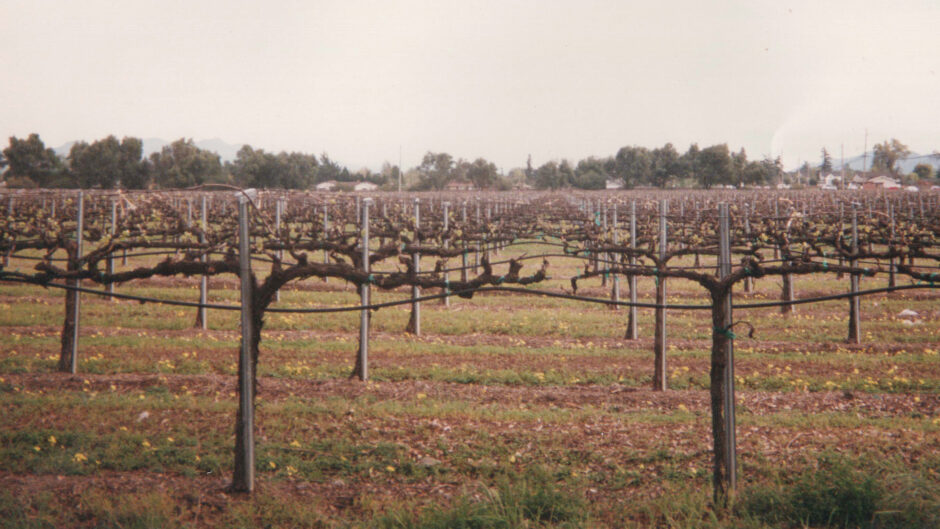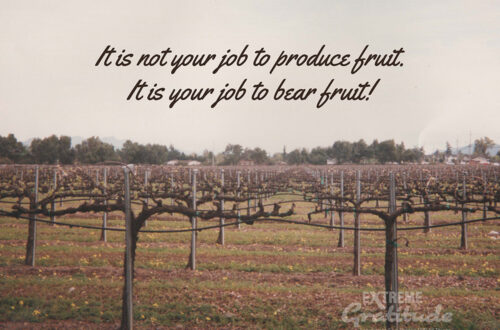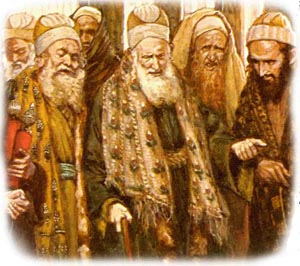Jesus said, “I am the true vine, and My Father is the vinedresser. Every branch in Me that does not bear fruit, He takes away; and every branch that bears fruit, He prunes it so that it may bear more fruit” (John 15:1-2).
Let’s stop there for a minute and establish a few facts that are often misunderstood.
Here’s how a grapevine works. The vine is the main stalk, the woody part of the plant that sends its roots into the soil and draws out nutrients. Those nutrients travel through the vine, by means of the sap, into the branches. As a result the branches do two things. They grow, and they bear fruit. They can do both, but there’s a problem. When the life of the vine goes into producing a long woody branch, there is less available for the production of fruit. As a result the branches have fewer grapes, and smaller, less useful grapes. In other words, you have a branch that looks like the vine, but the fruit is sparse, scattered and undernourished. If the vine is pruned—cut shorter—more of the life of the vine, the sap, goes into the production of fruit. As a result, the bunches are fewer, but larger, with larger grapes.
Jesus is the Vine. You and I are not vines. Jesus reiterates this in verse 5, “I am the vine, you are the branches.” We’re the branches. We are the ones referred to in verse 2 that either bear fruit or don’t. The Father is the vinedresser. That is, He is the farmer. He is the one responsible for the growth, health, and productivity of the vineyard.
So, here is the picture we have in verses 1 and 2. If there is a branch in Jesus that does not bear fruit, that would be someone who claims to be a Christian, and tries to look like a Christian, but all they’re really doing is learning what a Christian is supposed to look like and copying that. They are nothing but wood, and no fruit. So, the Father, the vineyard keeper, cuts them off. They are not abiding in Christ (verse 6), so they are thrown away. However, if they are abiding in Him, they will bear fruit (verses 4-5). Even so, the vinedresser wants the best and most luscious fruit possible. If left to ourselves, we tend to run amuck. We grow long and woody. We may look like the vine, but we are out-of-control, and going directions we don’t need to go. And we are wasting all the spiritual resources—the life of the vine, the work of the Holy Spirit—that the vine is pouring into us. Therefore, the vinedresser pulls out the pruners once again.
If we don’t realize what is really happening, this can be scary. We may think God is cutting off a fruitful part of our life, or even our ministry. And there you have part of the problem. We think it is “our” ministry. In reality, it’s just wood that looks like the vine, but it’s wasting sap. There may be fruit scattered along the way, but it is not fit for food to nourish those around us or to produce drink to quench the thirst of a dying world. In an actual vineyard, the vinedresser cuts the branch back to what is called the basal bud. It’s the bud near the base of the branch. In other words, not much wood is left. This allows the maximum amount of the sap, the life of the vine, to go into the production of fruit. That’s what God does with us. He’s not getting rid of anything of real value. He’s not taking away an essential part of our life, our goals or our ministry. He’s just pruning out the stuff that is keeping us from bearing the kind of fruit He desires for us.
In addition, just the idea of being pruned is a little scary. John the Baptist got it, as revealed in his “He must increase, I must decrease” declaration. For us it is, “I am crucified with Christ.” It is the “always carrying about in the body the dying of Jesus that the life of Jesus also may be manifest.” It is “if anyone would be my disciple he must take up his cross daily and follow me.” It is knowing that our old man was crucified with him so our sinful flesh may be made of no effect, and knowing “if we have died with Christ, we believe that we shall also live with Him.” It is the counting all things loss for the surpassing value of knowing Him … that I may know Him and the power of His resurrection and the fellowship of His sufferings, being conformed to His death; in order to attain to the resurrection from the dead.
Crucifixion hurts. The cross hurts. Dying to self hurts. The experiences we go through that reveal our dependence on self and cause us to depend more on Him can be challenging, difficult, and sometimes deeply painful. However, it is worth it because there is life after cross. There is resurrection. Jesus endured the cross for the joy set before Him. And, He taught His disciples the principles of the vine and abiding in Him and pruning “so that My joy may be in you and your joy may be made full” (John 15:11).



